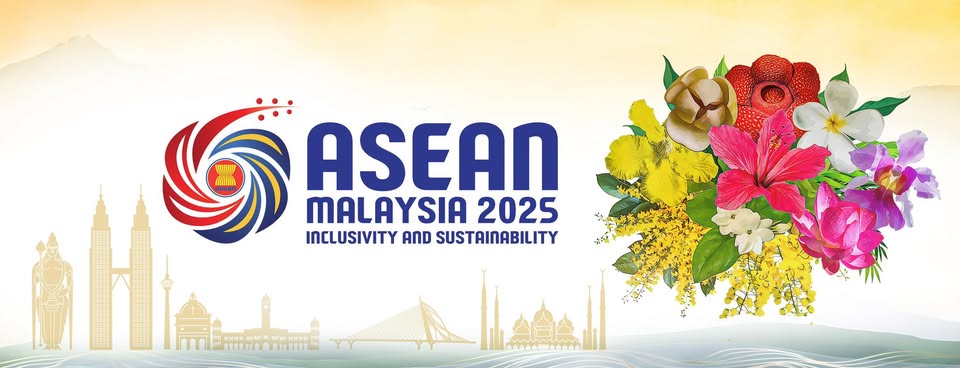
Kuala Lumpur will host Trump, Xi Jinping, Vladimir Putin, and other global leaders this October—placing Malaysia at the centre of a major diplomatic gathering.
By Dr Mohd Safar Hasim
This October, Kuala Lumpur will become the epicentre of global diplomacy as Malaysia hosts the 47th ASEAN Summit alongside the ASEAN-GCC and ASEAN+BRICS engagements.
The city will likely welcome a constellation of world leaders—including U.S. President Donald Trump, Chinese President Xi Jinping, Russian President Vladimir Putin, Brazilian President Luiz Inácio Lula da Silva, South African President Cyril Ramaphosa, and newly appointed Thai Prime Minister Anutin Charnvirakul.
Their presence signals more than ceremonial attendance—it marks Malaysia’s emergence as a diplomatic pivot in a fractured global landscape.
Prime Minister Datuk Seri Anwar Ibrahim confirmed Trump’s visit during a recent speech, noting that Xi and Putin are also expected to attend. These visits underscore Malaysia’s growing relevance as a trusted regional partner, capable of convening dialogue across ideological divides. But this summit is not just about power—it’s about principle.
Trump: Controversy Meets Civic Maturity
Trump’s visit has already stirred civic response. Groups like Boycott, Divestment and Sanctions (BDS) Malaysia and veteran activist Tian Chua have voiced opposition, citing his administration’s stance on Palestine and broader foreign policy legacies. These peaceful protests reflect Malaysia’s democratic maturity and its enduring solidarity with global justice movements.
Trump’s previous engagement with Malaysia was limited to transactional diplomacy under Najib Razak’s administration. His upcoming visit offers a chance to recalibrate that relationship—if Malaysia can assert a principled stance amid the optics of power.
Xi Jinping: Strategic Depth and Cultural Resonance
Xi Jinping’s relationship with Malaysia is far deeper and more structured. His state visit in April 2025 marked the 50th anniversary of Malaysia-China diplomatic ties. During that visit, Xi and Anwar signed 31 MoUs and reaffirmed a “high-level strategic China-Malaysia community with a shared future.” China has been Malaysia’s largest trading partner for 16 consecutive years, with bilateral trade reaching RM484 billion in 2024.
Xi’s presence at the summit reinforces Malaysia’s role in shaping ASEAN-China cooperation and signals continuity in regional economic integration.
Putin: Quiet Ties, Strategic Signals
Putin’s engagement with Malaysia has been episodic but symbolically potent. He attended the inaugural Russia–ASEAN Summit in Kuala Lumpur in 2005 and recently hosted Malaysia’s King Sultan Ibrahim in Moscow—the first royal state visit since diplomatic ties were established in 1967. Anwar himself has visited Russia twice since 2022, signalling a pragmatic approach to bilateral ties despite global tensions.
Putin’s potential visit, amid Western pressure and regional realignments, reflects Malaysia’s commitment to multilateral engagement without taking sides.
Thailand’s New Leadership
Thailand will be represented by its newly appointed Prime Minister, Anutin Charnvirakul, who succeeded Paetongtarn Shinawatra following her dismissal by the Constitutional Court over ethics violations. Anutin, a veteran politician and leader of the Bhumjaithai Party, has pledged to dissolve Parliament within four months and initiate constitutional reform. His presence at the summit introduces a new dynamic in Thai diplomacy—one that Malaysia must navigate with both tact and foresight.
BRICS and GCC: Expanding the Circle
Malaysia’s dual role as ASEAN Chair and BRICS Partner Country brings additional weight. Leaders from Brazil, South Africa, India, Egypt, Saudi Arabia, and the UAE are expected to attend. These engagements reflect Malaysia’s push to deepen ties with the Global South and Gulf economies, tapping into investment, energy cooperation, and multilateral reform.
The ASEAN-GCC and ASEAN+BRICS summits offer Malaysia a platform to promote ethical governance, climate resilience, and inclusive development—issues that transcend borders.
Malaysia’s Diplomatic Balancing Act
Hosting this diverse array of leaders places Malaysia in a delicate yet powerful position. Anwar’s emphasis on domestic stability, economic clarity, and institutional reform provides a foundation for principled diplomacy. Rather than merely accommodating power, Malaysia can model a diplomacy rooted in values.
ASEAN’s mandate for consensus and non-interference offers Malaysia a platform to promote regional solidarity and civic dignity. The challenge is not just logistical—it is moral.
Civic Literacy and Media Ethics
As global attention turns to Kuala Lumpur, Malaysian media must rise to the occasion. Coverage should go beyond motorcades and handshakes to unpack the implications of foreign policy, trade negotiations, and regional security. This summit is not just a headline—it’s a civic moment.
Closing Reflections
Malaysia’s strength lies not in the grandeur of the summit, but in the clarity of its voice. In a world of shifting alliances and contested truths, principled diplomacy is not naïve—it is necessary. Hosting Trump, Xi, Putin, and a chorus of global leaders is a test of Malaysia’s civic maturity, diplomatic agility, and moral clarity.
Let the world see not just a host nation, but a thinking nation—one that welcomes dialogue, defends dignity, and leads with principle.
Dr Mohd Safar Hasim is a Council Member of the Malaysian Press Institute (MPI)
WE